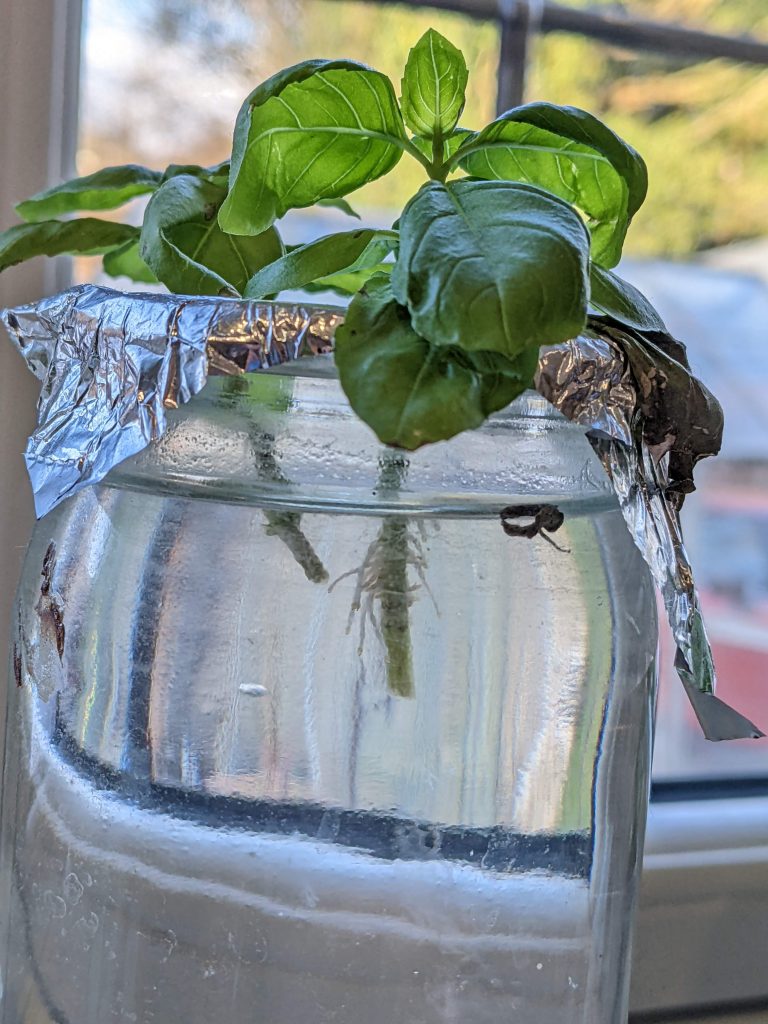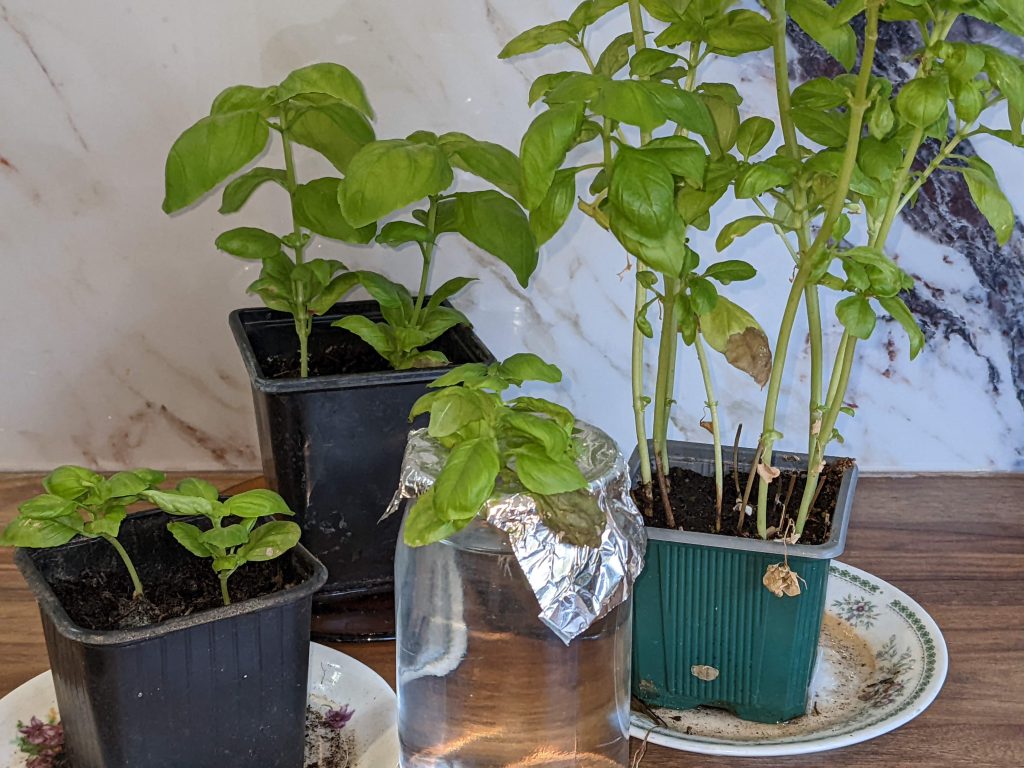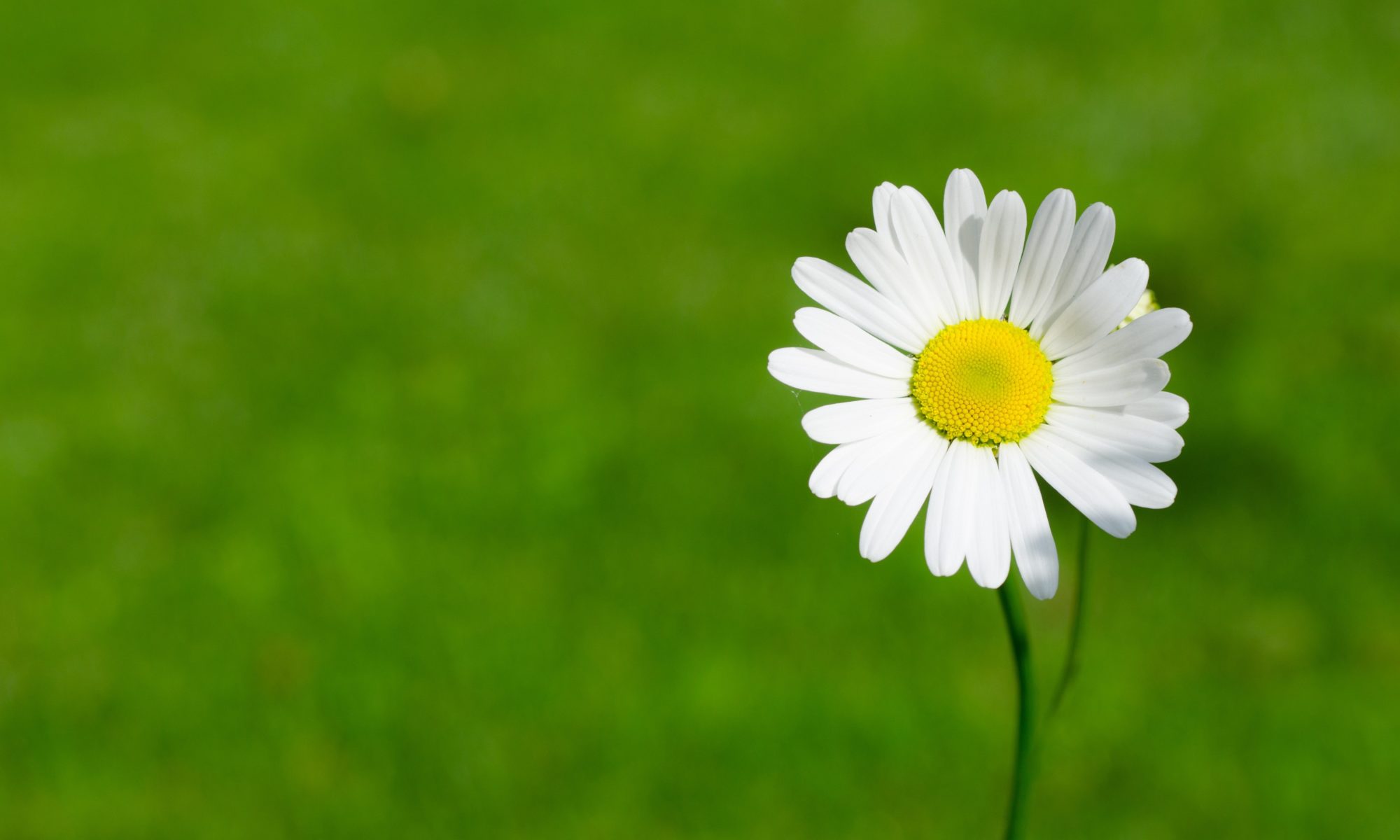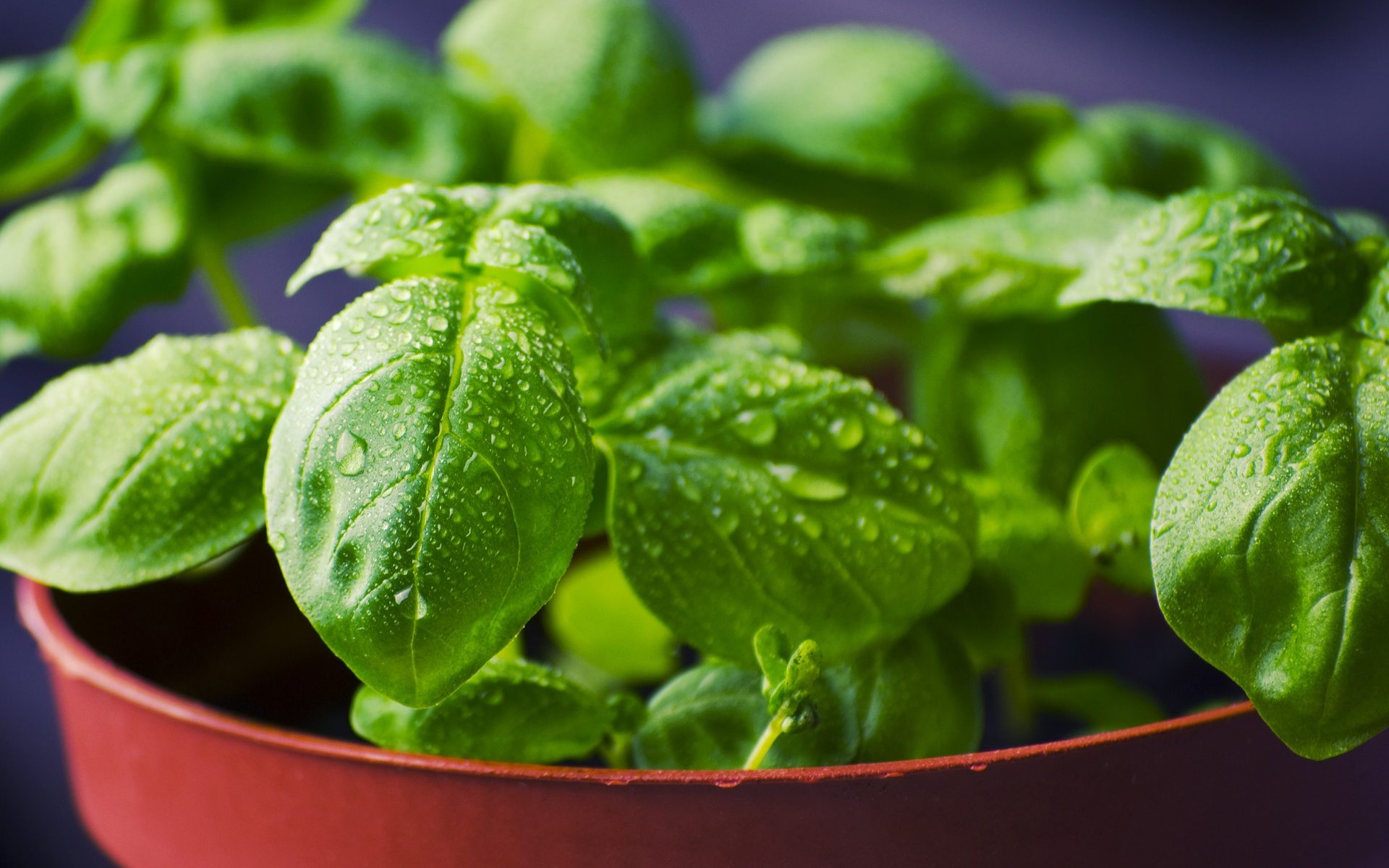Basil is a very commonly used herb in many dishes and cuisines. Its easy to grow and is known for its pleasant aroma and fresh flavour.
The leaves are used fresh or dried to flavour meats, fish, salads, and sauces. Basil is a versatile annual herb, used in pasta dishes, pizzas, and Thai curries.
There are many types of Basil, differing in flavour and scent. Although Basil is widely available in super-markets, its so easy to grow why not try growing your own.
It can be cultivated from cuttings easily and with very little time or money needed. Read on for our easy method of propagating Basil. This method can be applied to other plants such as: Mint, Oregano, Thyme, Sage and Rosemary.

Easy Basil Propagation
- Begin with an Established Basil Plant
We got ours from a local supermarket, but you can grow your own from seed or purchase plug plants.
- Take 2-4 Cuttings
Locate the younger stems of the Basil, as these are most likely to propagate. Cut near to the bottom of the stem and remove any lower leaves.
- Fill a Jar with water
We found a Jam jar to work well here, covering the top with a layer of tin-foil.
- Place Cuttings in Jar
Poke holes into the foil and place the cuttings, one per hole. The leaves should be above the foil and the stem should extend into the water.
- Find a Semi Sunny spot
Place the Jam jar of cuttings on a window ledge or similar sunny spot.
- Allow time for roots to form
Leave the Jar for 2-4 weeks, topping up the water if needed. Roots should begin to develop at the base of the stem. (if roots have not developed or are not very long, leave for another 1-2 weeks, or until roots have developed sufficiently.)
- Transplant to a pot
Carefully transplant the cuttings into a suitably sized pot filled with good quality compost.
- Water
Keep well watered and place pot in a sunny window. The Basil should begin to grow vivaciously in 1-2 weeks.
- Eat.
When leaves are fully opened, and the plant is established. Leaves can be picked and used in many dishes.
- Repeat
Repeat steps 1-9 to continue Basil cultivation. Repeating regularly can achieve ‘infinite’ availability of Basil.

Right: original plant. Back: 1st cuttings. Left: 2nd cuttings. Center: newest cuttings


